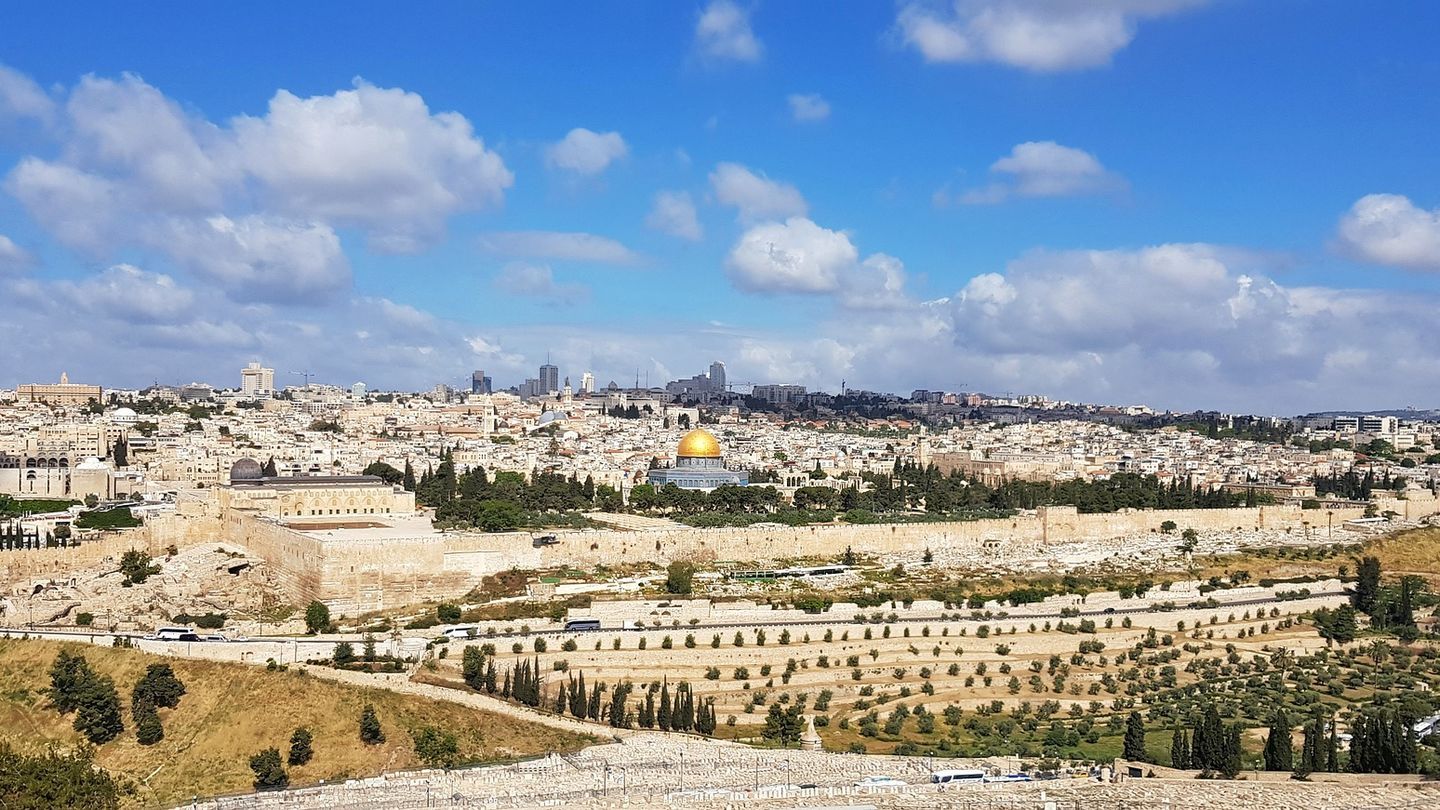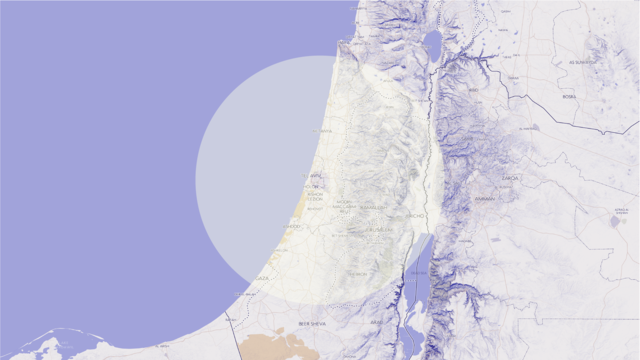Recognition of Jerusalem as the capital city of Israel – an acknowledgement of the obvious or an unlawful act?

On December 6, 2017, the US president Donald Trump officially recognized Jerusalem as the capital city of the State of Israel and announced his plan to move the American embassy to this city. The majority of States have reacted to this decision with unease or direct condemnation. A minority, including the Czech Republic, have expressed their understanding or, in some cases, even support for it.
On December 6, 2017, the US president Donald Trump officially recognized Jerusalem as the capital city of the State of Israel and announced his plan to move the American embassy to this city. The majority of States have reacted to this decision with unease or direct condemnation. A minority, including the Czech Republic, have expressed their understanding or, in some cases, even support for it. The divide within the international community showed itself also in the UN General Assembly. The resolution criticizing the attempts to change the status of Jerusalem unilaterally was adopted by 128 votes in favour, with 9 States voting against and 35, including the Czech Republic, abstaining. In the UN Security Council, a resolution with a very similar content got support from 14 States but could not be adopted due to the US veto. What makes the recognition of Jerusalem as the capital city of Israel such a controversial issue? Is it not after all, as Trump said, acknowledging the obvious? What led the General Assembly to express its deep regret at the US decision and label it as legally problematic? These questions will be addressed in the new International Law Reflection of the IIR Centre for International Law.
Recognition in International Law
Recognition is one of the traditional institutions of international law. It is a unilateral act, by which a State formally acknowledges a certain fact. Most commonly, this fact is the existence of a new State or a new government. In a wider sense, however, recognition can relate to any fact which has legal content and implications. Recognition can have constitutive effects – then, it is one of the conditions for the fact to materialize; or declaratory effects – then, the fact materializes regardless of the recognition, which only confirms its presence. Since the beginning of the 20th century, the latter approach has largely prevailed at the international scene. To give an example, when the Czech Republic recognized Kosovo in 2008, that meant that in its opinion, Kosovo as a sovereign State already existed at the time of recognition. Recognition goes beyond mere acknowledgment of a certain fact. It also conveys a positive attitude with regard to this fact or at least a readiness to accept it. The recognition of a State or a government is usually followed by the establishment of diplomatic relations, conclusion of bilateral treaties, establishment of embassies at the territory of the other State, etc. Therefore, even though the recognition is not a condition for the creation of a new State or government, it is crucial for the capacity of such a State or government to become full members of the international community. Recognition also strengthens legitimacy of the recognized entity, because it means that other actors consider the new State or government as a legitimate representative of a certain political community. The same is true, a contrario, for the instances of non-recognition. States choose not to recognize a State or a government either when they have doubts as to whether the new entity meets the conditions of the State or of a lawful government, or when they acknowledge that it indeed meets these conditions but they do not want to have any relations with the entity nonetheless. Israel provides a good example. Objectively, it exists as a State. Yet, it has secured formal recognition from 162 States only. The other States – mostly Arab and Muslim ones – refuse to recognize Israel, mainly because they do not consider it a legitimate international actor.
Recognition is a voluntary act that a State may but is not obliged to carry out. There is no obligation to recognize and non-recognition does not entail legal sanctions, though it may have negative political consequences. At the same time, there are situations in which States have the obligation not to recognize. This is so when the fact to be recognized results from an unlawful use of force or from any other violation of the fundamental norms of international law (such as the protection of human rights, the prohibition of genocide, the right to self-determination, etc.). In these situations, recognition is not an option for a State, because it would constitute an unlawful act of itself. A typical example is the prohibition to recognize territorial expansion carried out by means of military annexation.
A careful reader might have noted that so far, the recognition of a capital city has not been mentioned in the text. The reason is simple. International law does not know such a recognition as an autonomous institution. The choice of the capital city, as well as its potential change, are left to individual States. It could also be argued that the recognition of the capital city is automatically entailed in the recognition of the State, as such a recognition confirms that the State has the right to decide in its internal affairs. However, this right is not unlimited and that is true event with respect to the choice of the capital city. States may not choose as their capital a city which is located in the territory of another State or a city whose legal status is disputed. Jerusalem falls into the latter category.
Jerusalem: A City with A Disputed Legal Status
Jerusalem has been subject of disputes and wars for most of its history. For us, the relevant period is the one since the end of WWII when the foundations of the modern system of international law were laid out, based on the UN Charter and guaranteed by the United Nations. Within the UN, the status of Jerusalem has been discussed almost since its very creation. Already in 1947, the UN General Assembly adopted Resolution 181 which included a plan for the division of the British mandate of Palestine into a separate Jewish and Palestinian State. It also stated that the “the City of Jerusalem shall be established as a corpus separatum under a special international regime and shall be administered by the UN”. This plan was reconfirmed by the UN after the establishment of the State of Israel in 1948 (Resolution 194 adopted in 1948).
The idea of Jerusalem as a separate entity has never been completely abandoned, though progressively it has been replaced by another idea under which Jerusalem should be the capital city of the two States – the State of Israel and the State of Palestine – which should co-exist in the territory of the former mandate by virtue of the post-war resolutions and of the outcomes of more recent negotiations (for example, the 1993 and 1995 Oslo Agreements). The latter project has the support of the UN, the EU and other actors. In 2016, the Ministry of Foreign Affairs of the Czech Republic issued a press release stating that “the status of Jerusalem as the capital city of the State of Israel is not internationally recognized. Czech Republic together with other member States of the EU regards Jerusalem as the future capital city of both States, that is the State of Israel and the future State of Palestine.”
Jerusalem is therefore different from most other cities in that no State can determine its status unilaterally. The determination has to result from an agreement of all the relevant actors, namely the State of Israel, the State of Palestine as well as, due to the global consequences of the Israeli-Palestinian conflict, the wider international community represented by the UN.
Jerusalem as the Capital City of Israel?
Israel does not fully share this view. As early as in 1949, it declared Jerusalem to be an integral part of its territory and its eternal capital city. In that time, Israel controlled only the Western part of the city. This changed during the Six Days Wars in 1967 when Israel got to occupy the Eastern part. The occupation of the area and its subsequent unlawful annexation have stirred condemnation from the international community, which continues to consider the Eastern part of the city as an occupied area. In 1980, Israel adopted an amendment to its Basic Law entitled Jerusalem, Capital of Israel. The amendment states that Jerusalem, complete and united, is the capital of Israel. The amendment also forbids the transfer of authority over any part of the city to a foreign body, including the State of Palestine. This regulation goes against the idea of Jerusalem as the capital of the two States. The potential division of the city has been made further complicated by the legal act adopted by the Israeli parliament at the beginning of January 2018 which makes any changes of Israel’s position conditioned on the agreement of a qualified majority of the parliament.
In reaction to the 1980 amendment, the UN Security Council adopted two resolutions. All members of the Council, with the exception of the US, voted in favour. The US abstained but did not use its veto power, the resolutions thus could be adopted. Resolution 476 confirms that “all legislative and administrative measures and actions taken by Israel, the occupying Power, which purport to alter the character and status of the Holy City of Jerusalem have no legal validity” (para 3). Resolution 478 explicitly refers to the amendment to the Basic Law, qualifying it as a violation of international law, and requests all States to respect this position and to withdraw their embassies from Jerusalem. By then, the majority of States already had their embassies in Tel Aviv, the request was therefore addressed only to a few States mostly from Latin America. Those States complied with the request, moving their embassies from Jerusalem (two, Costa Rica and El Salvador, returned their embassies to Jerusalem shortly after but since 2006 no embassies have resided in Jerusalem).
Recognizing Jerusalem as the Capital City of Israel
This situation could now change. The US president Trump in his December 6, 2017 statement explicitly declared that “Jerusalem is the capital of Israel”. He also announced his intention to move the US embassy from Tel Aviv to Jerusalem. He justified his position by four main arguments.
First, he suggests that “Israel is a sovereign nation with the right, like every other sovereign nation, to determine its own capital”. That is indeed true. Israel is a sovereign State, which has the right to choose its capital city. However, it has to do so, as any other sovereign State, within the limits set by international law. And international law prohibits it from unilaterally choosing as its capital city Jerusalem, especially Jerusalem as a whole including its occupied Eastern part. The final status of Jerusalem has to be determined through an international agreement.
The second argument posits that the recognition does not have an impact on the future settlement of the conflict and that the US is not “taking a position of any final status issues including the specific boundaries of the Israeli sovereignty in Jerusalem or the resolution of contested borders”. That could also be true. The statement would however have to be more nuanced and take into account the specific legal status of the Eastern Jerusalem. That is what he Czech Ministry of Foreign Affairs sought to do in its statement of December 6, 2017. Having, somewhat incautiously declared that the Czech Republic practically recognizes Jerusalem as the capital city of Israel, the Czech Ministry was careful enough to add that the recognition applies within the “borders of the demarcation line of 1967“ (therefore without the Eastern Jerusalem), and that “the Czech Republic, together with the other member States of the EU […], considers Jerusalem as the future capital city of both States, that is the State of Israel and the future State of Palestine”. Trump’s statement does not include any such clarifications. Moreover, it invokes the Jerusalem Embassy Act passed by the US Congress in 1995, which clearly states that Jerusalem was reunited in 1967, and that an undivided Jerusalem should remain the capital city of Israel. It is the same position as that expressed in the Amendment to the Basic Law of Israel. This position violates the relevant resolutions of the Security Council as well as general international law.
The third argument suggests that the US only “acknowledges the obvious. That Jerusalem is Israel’s capital. This is nothing more or less than a recognition of reality”. To some extent, this is also true. Israel does indeed regard Jerusalem as its capital city and, moreover, it exercises control over the city as a whole. Yet, as was stated above, recognition goes beyond a mere acknowledgement a certain material fact. It also conveys a positive attitude with regard to this fact or at least a readiness to accept it. International law, however, prevents States from recognizing facts that are a result of a violation of the norms of international law, such as the annexation of occupied territories. The Security Council resolutions 476 and 478 and a number of resolutions adopted by the General Assembly explicitly confirm that the annexation of the Eastern Jerusalem and the designation of the whole of Jerusalem as the capital of Israel constitute such violations. The recognition of this fact does not therefore merely acknowledge the obvious. It seeks to legalize the outcomes of an unlawful act and, as such, it is in itself unlawful.
The fourth argument notes that the recognition of Jerusalem as the capital of Israel is “in the best interests of the United States of America and the pursuit of peace between Israel and the Palestinians. This is a long overdue step to advance the peace process. And to work towards a lasting agreement”. This argument is probably the most surprising. Bearing in mind that, as Trump himself admits that “Jerusalem is one of the most sensitive issues in those talks”, it is difficult to see how an act declaring that only one part to the talks has the legal title over the whole city could help the peace process. It is more likely that the declaration will make the process even more complicated, weakening also the position of one of its key actors, the US, which could now hardly pretend to be an impartial mediator. In a broader perspective, the recognition casts doubt on the argument that territorial annexation can never be accepted as lawful, an argument which has recently been repeatedly invoked by many states, including the US, with respect to the Crimean issue. While only time will tell whether this development is truly in the best interest of the US or anyone else, there are good reasons to be sceptical about it.








